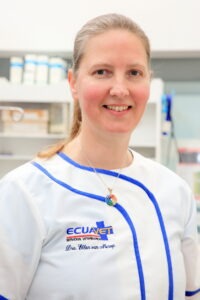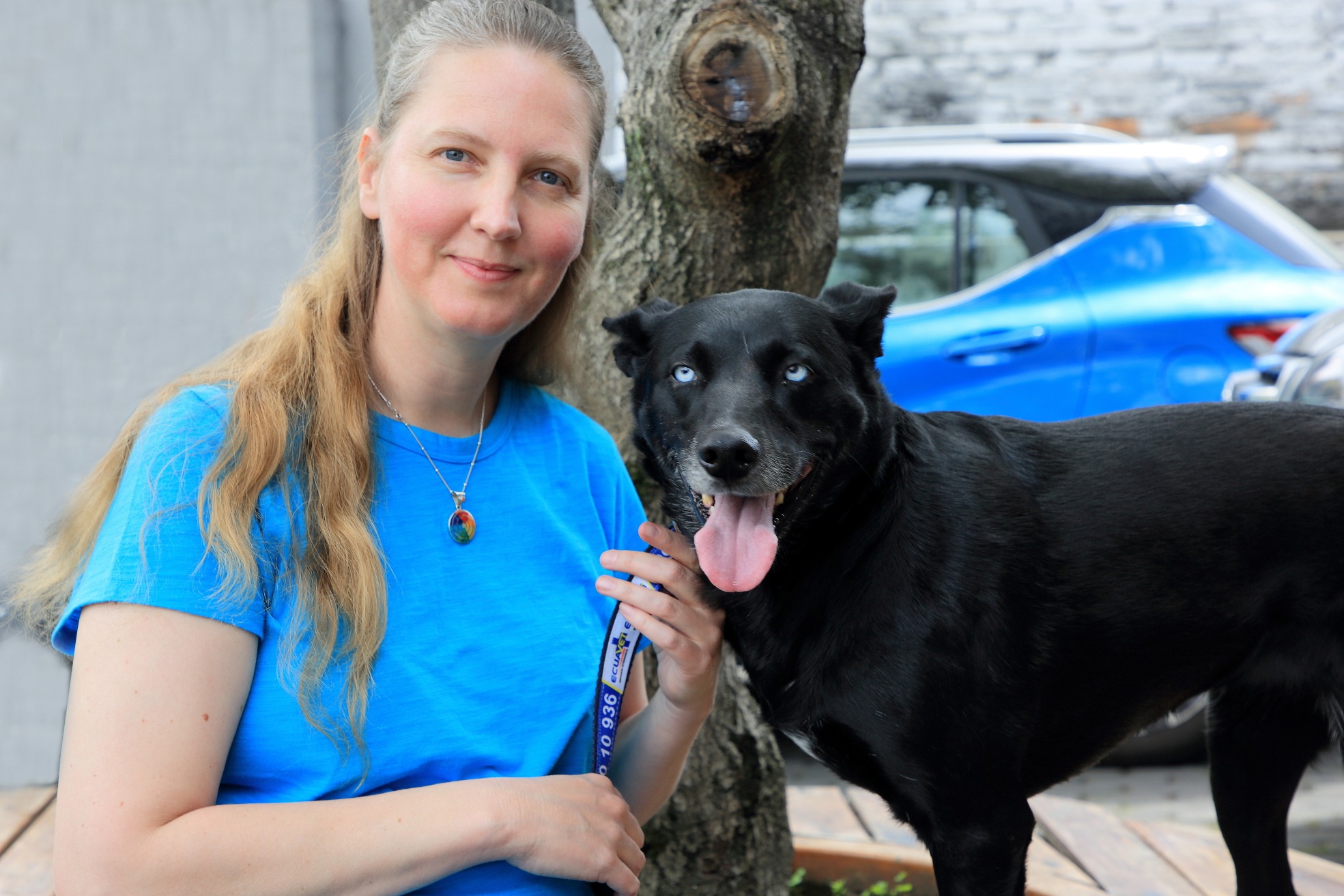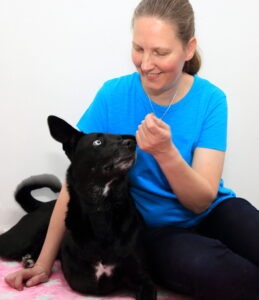hide
h3
center center
hide
 Could you introduce yourself to our members?
Could you introduce yourself to our members?
I am originally from the Netherlands and qualified as a veterinarian at Ghent University in Belgium. Once qualified, I spent a year travelling and volunteering for wildlife charities before starting my career in Quito, Ecuador. I now run a practice in Quito with my husband Germán (also a vet). In addition to clinical work, I also manage the practice, having studied to become a qualified accountant and auditor, in addition to a veterinarian.
I was a class representative at school and a student representative at university andI soon became Education Representative for Ecuador’s companion animal veterinary association Asociación De Medicos Veterinarios Especialistas en Pequenas Especies (AMVEPE). I had no idea what WSAVA Congresses were until a previous president, the late Dr Peter Ihrke, convinced me to attend one in Geneva. I went to every session I could and immediately fell in love with the association. At the following WSAVA Congress, held jointly with BSAVA in 2012, my financial qualification led to me being invited to join the WSAVA’s Executive Board as Apprentice Treasurer then Treasurer. The rest, as they say, is history.
What do you enjoy about working in Ecuador and how has companion animal practice changed since you moved there?
I had lived in Ecuador for a while as a child because of my father’s job. When I visited it again during my post-graduation year of volunteering, it felt like home. At the time, it was difficult for newly graduated veterinarians to find jobs in Europe so starting my career in Ecuador seemed the natural thing to do. I have never looked back.
I already spoke Spanish so my main challenge was to get to grips with a more hierarchical culture, in which questioning your boss was not encouraged. I also had to constantly remind clients that I was not a specialist. There was a presumption that, if you were European, you were likely to be more experienced – and wealthy. I was always charged double for fruit and vegetables in the market so learned to send Germán to do the shopping.
hide
More people have pets and want to take good care of them – but the economic challenges remain so we have to offer good care but on a limited budget.
This is the author
hide

full
contain
center center
hide
Much has changed in companion animal practice during the last 20 years. More people have pets and want to take good care of them – but the economic challenges remain so we have to offer good care but on a limited budget. Some owners can afford and want expensive medications but often these are not registered for use in Ecuador because the market is not big enough for the pharmaceutical company. This is very frustrating and the lack of equity in access to veterinary medicines globally is an issue on which the WSAVA is campaigning for change.
We have more specialists now – though still too few. The specialism gap puts a huge responsibility on the shoulders of general practitioners. We’ve been in situations where we’ve been up all night worrying, reading and studying in order to try to manage a difficult case. After all, if we can’t help, there is often no other option. Currently our specialists still have to train outside Ecuador but it’s great when they come back and share their knowledge.
Why did you choose to study to become an accountant as well as a veterinarian?
I love mathematics and, a few years ago, I started running the business side of our practice. I undertook long distance study to become a qualified accountant and auditor. It took me six years, but I earned the title Engineer in Accounting and Auditing, in addition to Veterinarian. Recently, I took the difficult decision to stop being a full-time clinician to dedicate more time to managing the practice. It took me a long time to realise that this was an important role and deserving of my time and attention. It also took my team a while to accept – but we got there.
 Why do you believe the WSAVA’s work is so important?
Why do you believe the WSAVA’s work is so important?
The WSAVA is an amazing association and I was honored to be elected as its President during WSAVA Congress last year. I’m particularly excited at the launch of our new three-year strategy, which will see us strengthen our efforts to set global standards for clinical care in key areas of companion animal practice and extend our CE work to include professional development in leadership, management and other business and HR-focused area. I believe a strong understanding of these topics is critical to the sustainability of our profession.
I’m really enjoying the role, especially meeting our members from around the world and learning how we can help them and support them.
Tell us something about you that may surprise us!
I enjoy cooking (and eating ) and reading. In fact, when I was about 15, I started writing some simple poetry, plays and even a novel. Though a few willing English teachers edited my work, I’ve not done any writing recently. Another hobby I would love to get back to before my eyes become too old is cross-stitching. I used to love to spend my free time stitching beautiful designs and just letting my mind wander. At the moment I have very little free time, so the little I do have is generally spent cuddling my cat and dogs, cooking, eating and, sometimes, walking.
hide
hide
